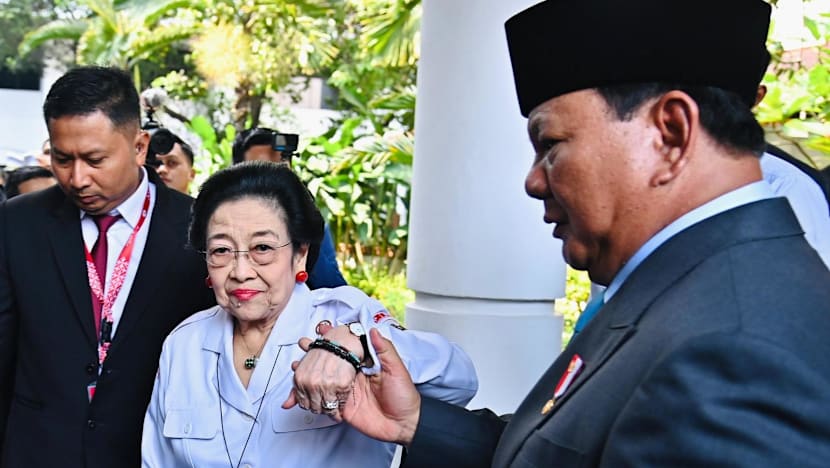
News
October 20, 2025
As Prabowo marks one year in power, intrigue and despair grow over rival party PDI-P's role
Despite controlling nearly a-fifth of parliamentary seats, PDI-P has largely refrained from challenging President Prabowo’s contentious policies and legislation.
**Jakarta, Indonesia** – As President Prabowo Subianto celebrates his first year in office, questions are swirling around the role of the Indonesian Democratic Party of Struggle (PDI-P), once a formidable opposition force. The PDI-P, which holds a significant number of seats in parliament – nearly a fifth – has been notably quiet in its response to Prabowo's policies and legislative agenda, sparking both intrigue and despair among political observers and its own supporters.
The party's seemingly passive stance is particularly surprising given its history as a vocal champion of democratic ideals and social justice. Historically, the PDI-P, often associated with the legacy of former President Megawati Sukarnoputri, has been known for its strong critiques of government policies that it deemed detrimental to the Indonesian people. This silence has left many wondering about the party's current strategy and its commitment to holding the government accountable.
Several theories have emerged to explain the PDI-P's muted response. Some analysts suggest that internal divisions within the party might be hindering its ability to mount a cohesive opposition. Others speculate that backroom negotiations and potential compromises with the ruling coalition could be influencing their actions. The possibility of securing key positions within the government or influencing policy from within, rather than through outright opposition, has also been floated as a potential motivator.
However, the lack of a strong dissenting voice from the PDI-P has drawn criticism from segments of the public and within the party itself. Critics argue that the party is failing to fulfill its duty as a responsible opposition, allowing potentially harmful policies to pass without adequate scrutiny. This perceived lack of resistance has fueled a sense of despair among those who had hoped the PDI-P would serve as a check on the President's power.
The coming months will be crucial in determining the PDI-P's future trajectory. Whether the party will continue its current course, attempt to revitalize its opposition role, or forge a more collaborative path with the government remains to be seen. The decisions made by the PDI-P will undoubtedly have a significant impact on the Indonesian political landscape and the balance of power within the nation. The public, and especially the party's loyal base, will be watching closely, eager to see if the PDI-P will reclaim its voice and once again stand as a powerful force for change.
The party's seemingly passive stance is particularly surprising given its history as a vocal champion of democratic ideals and social justice. Historically, the PDI-P, often associated with the legacy of former President Megawati Sukarnoputri, has been known for its strong critiques of government policies that it deemed detrimental to the Indonesian people. This silence has left many wondering about the party's current strategy and its commitment to holding the government accountable.
Several theories have emerged to explain the PDI-P's muted response. Some analysts suggest that internal divisions within the party might be hindering its ability to mount a cohesive opposition. Others speculate that backroom negotiations and potential compromises with the ruling coalition could be influencing their actions. The possibility of securing key positions within the government or influencing policy from within, rather than through outright opposition, has also been floated as a potential motivator.
However, the lack of a strong dissenting voice from the PDI-P has drawn criticism from segments of the public and within the party itself. Critics argue that the party is failing to fulfill its duty as a responsible opposition, allowing potentially harmful policies to pass without adequate scrutiny. This perceived lack of resistance has fueled a sense of despair among those who had hoped the PDI-P would serve as a check on the President's power.
The coming months will be crucial in determining the PDI-P's future trajectory. Whether the party will continue its current course, attempt to revitalize its opposition role, or forge a more collaborative path with the government remains to be seen. The decisions made by the PDI-P will undoubtedly have a significant impact on the Indonesian political landscape and the balance of power within the nation. The public, and especially the party's loyal base, will be watching closely, eager to see if the PDI-P will reclaim its voice and once again stand as a powerful force for change.
Category:
World